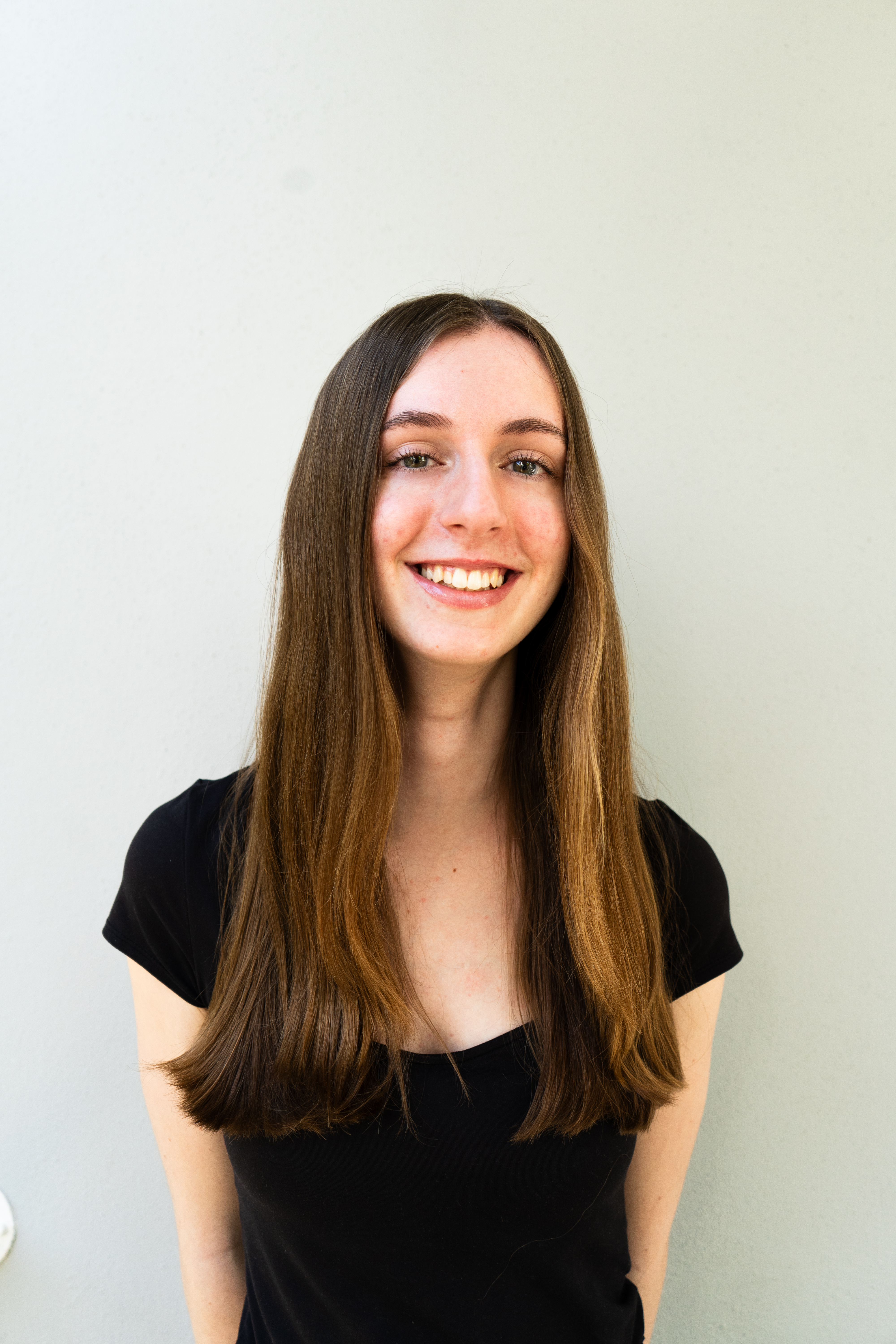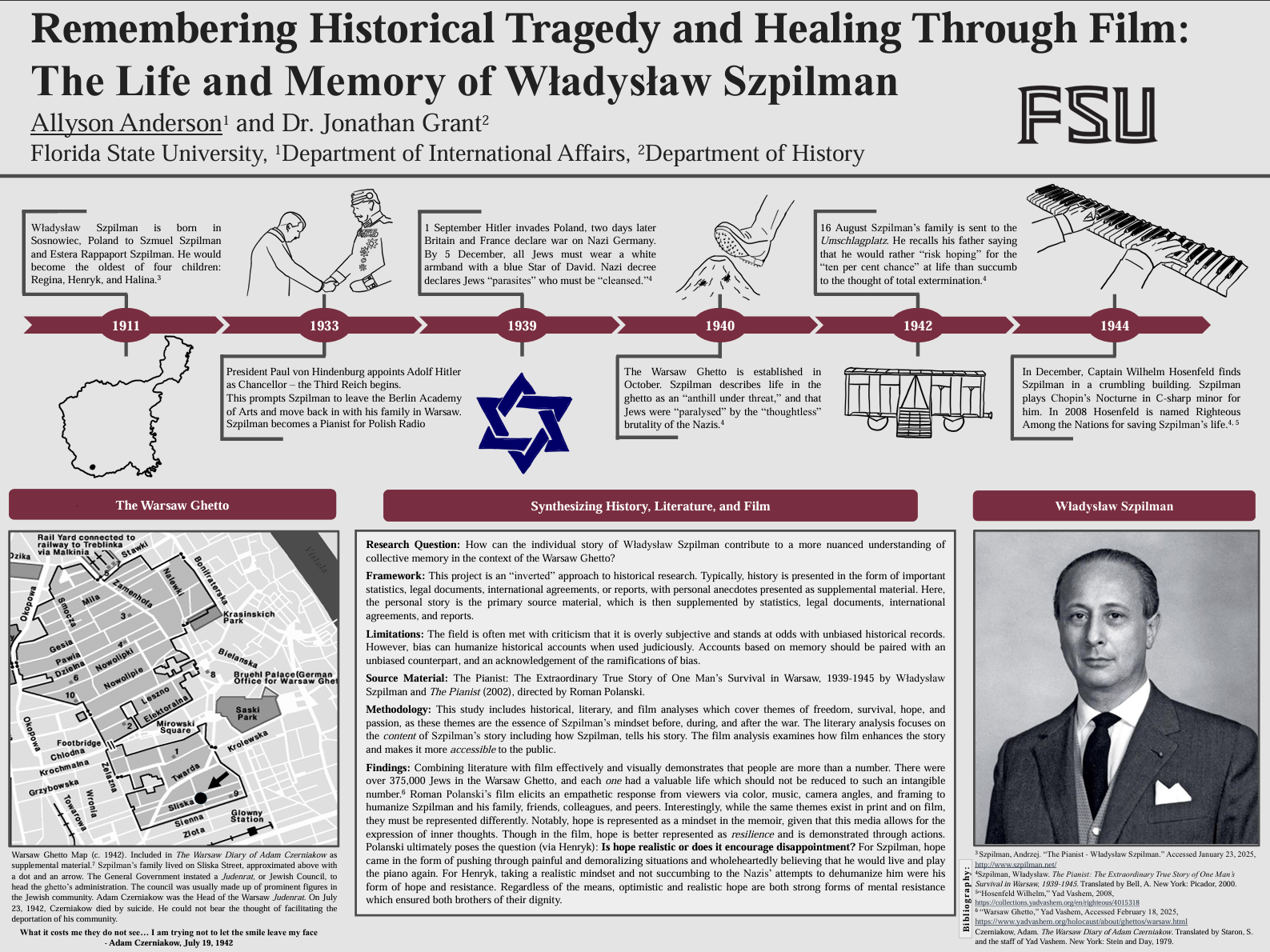Research Symposium
25th annual Undergraduate Research Symposium, April 1, 2025
Allyson Anderson Poster Session 4: 3:00 pm - 4:00 pm / Poster #212

BIO
Здравствуйте & Hallo! I am a senior from Orlando, Florida majoring in Russian & East European Studies and minoring in German Language and Public Administration. This is my first independent research project, it is also my Honors in the Major thesis. My coursework has demonstrated that utilizing personal accounts as the principal source is significantly more impactful than using them as supplementary information. My research interests include human rights/genocide education, collective memory, and conflict resolution. Eventually, I hope to pursue a Master’s degree in Human Rights and Conflict Resolution; though, for now, I plan to get practical experience in the field with an NGO. Also, I am spending five weeks in Dresden, Germany this summer to study the German language and contemporary culture!
Remembering Historical Tragedy and Healing Through Film: The Life and Memory of Władysław Szpilman
Authors: Allyson Anderson, Dr. Jonathan GrantStudent Major: Russian & East European Studies
Mentor: Dr. Jonathan Grant
Mentor's Department: History Mentor's College: Social Sciences and Public Policy Co-Presenters:
Abstract
Memory Studies is a relatively new field of study, which was first established and discussed at length by Maurice Halbwachs in La mémoire collective. Memory is the culmination of past experiences, either of an individual or a group (collective), which that individual or group recognizes. Simply put, history exposes what happened, how something happened, and why conditions objectively change over time. Memory is how historical events are felt and how they are interpreted by those who experienced them. This study synthesizes a literary analysis of Władysław Szpilman's memoir, "The Pianist," a film analysis of Roman Polanski's adaptation of Szpilman's memoir, and a historical analysis of the major events in Poland between 1933 and 1945 in order to contribute to a more nuanced understanding of survival in the Warsaw Ghetto. Specifically, this study compares portrayals of survival, freedom, music, and hope through different mediums. For the memoir, the point of view, diction, tone, syntax, mood, and the passage of time are analyzed. For the film, the study focuses on the use of sound/music, camera angles and framing, colors, and structure. The interdisciplinary approach emphasizes that Władysław Szpilman was more than a survivor; he was a renowned pianist and composer who greatly contributed to Polish music and culture both before and after World War II. The findings indicate that although literature, film, and history contain different approaches to representing the past, only when combined can these mediums fully convey the weight of the Holocaust.
Keywords: Collective Memory, Holocaust, History, Human Rights, Film

